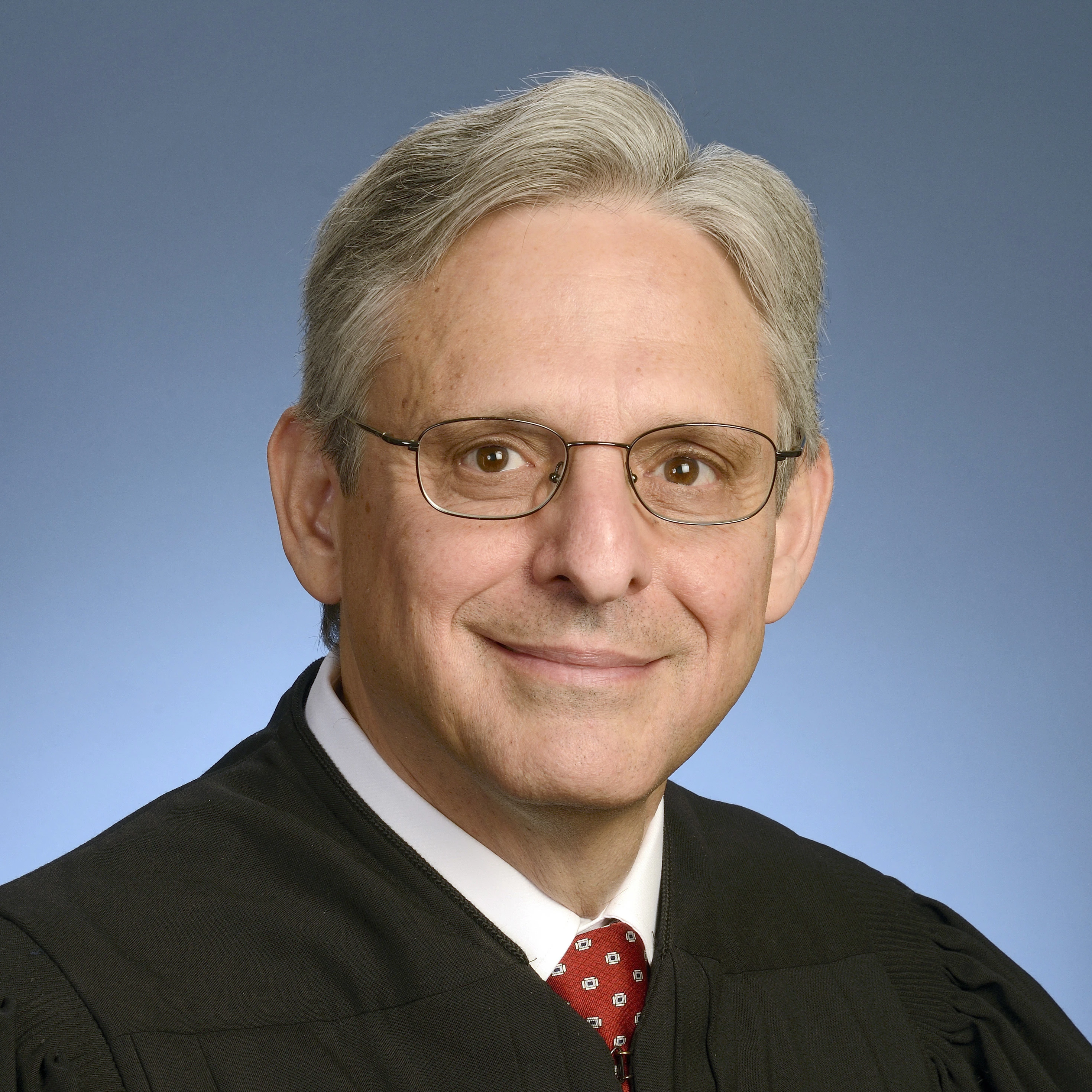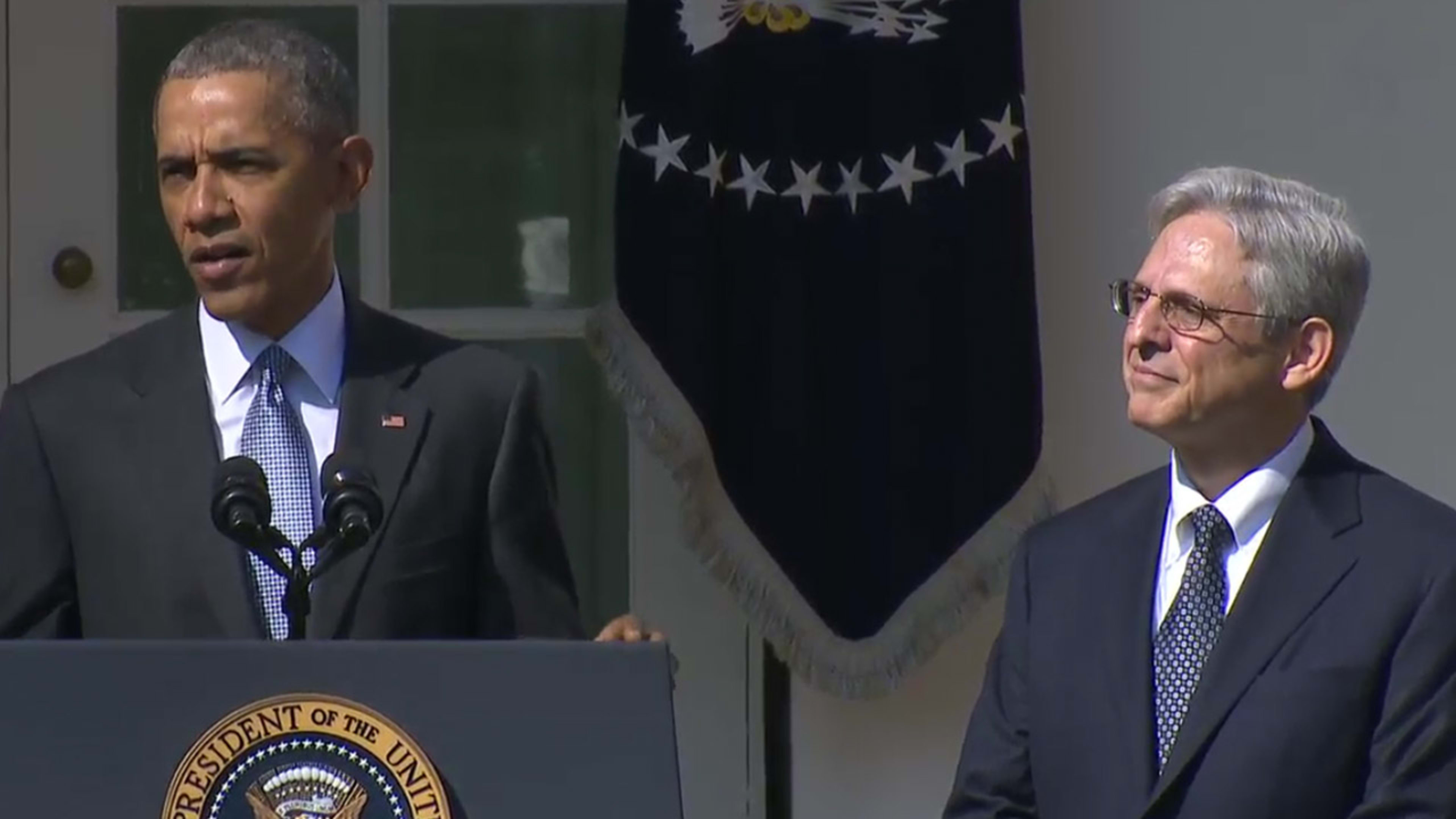Merrick Garland, President Obama’s nominee to the Supreme Court, is considered a neutral judge and among the most unlikely choices to fuel an overly contentious confirmation battle.
A 19-year veteran of the of U.S. Court of Appeals for the District of Columbia Circuit, Garland would fill the seat of the late Antonin Scalia, who died unexpectedly last month. Garland, who has been praised by conservative lawmakers such as Sen. Orrin Hatch (R-Utah), graduated with high honors from Harvard Law School, clerked for Justice William Brennan, and worked at high-powered law firm Arnold and Porter.
Garland is not a clear ideologue, with more conservative views on criminal law but quite liberal in cases involving open government, the First Amendment, and environmental law. He rarely heard cases involving such hot-button issues as abortion or the death penalty, since the DC district court usually handles regulatory challenges.
The 63-year-old jurist has only taken part in a few cases that resulted in Supreme Court review, notes SCOTUS Blog. These included a decision that federal district courts lack habeas corpus review over the claims of Guantanamo detainees and that the FCC’s revocation of a license was subject to the restrictions of the Bankruptcy Code.

In criminal law, Garland has often sided against criminal defendants appealing their convictions, often clashing with more liberal colleagues on the district court.
In First Amendment cases, Garland has taken an expansive view, supporting a plaintiff’s quest to reinstate his claim that he was fired for expressing himself in violation of his free-speech rights and arguing “for broader application of reporter’s privilege,” notes SCOTUS Blog. And he has bolstered open government initiatives, winning praise a few years ago for putting audio files of the district court’s hearings online by 3:00 p.m. on the day that cases were argued.
Garland has generally been deferential to decisions made by federal agencies, including the National Labor Relations Board, the Securities and Exchange Commission, and the Department of Labor. On environmental law, he has often sided with the Environmental Protection Agency in cases where its rules and regulations are challenged by industry, including the “hapless toad” case in which the government sought to apply the Endangered Species Act to the animal. In that decision, the ruling included the following line: “The panel’s approach in this case leads to the result that regulating the taking of a hapless toad that, for reasons of its own, lives its entire life in California constitutes regulating “Commerce among several States.'”
Garland once expressed skepticism about a juice maker’s health claims in “an intriguing case about science, truth and advertising.” When the Federal Trade Commission sought in 2014 to punish pomegranate juice maker Pom Wonderful for making allegedly misleading claims about its health benefits, Garland was tough in his appraisal of the company’s arguments. He cited the wording of one of the company’s ads, saying “I don’t understand how you can regard that as not misleading.”
Before taking the bench, Garland worked for federal prosecutors, managing the 1995 investigation into the Oklahoma City bombing and later overseeing the “Unabomber” probe in the wake of the arrest of Ted Kaczynski in 1996, reports USA Today.
This post will be updated.
Recognize your brand’s excellence by applying to this year’s Brands That Matter Awards before the early-rate deadline, May 3.
